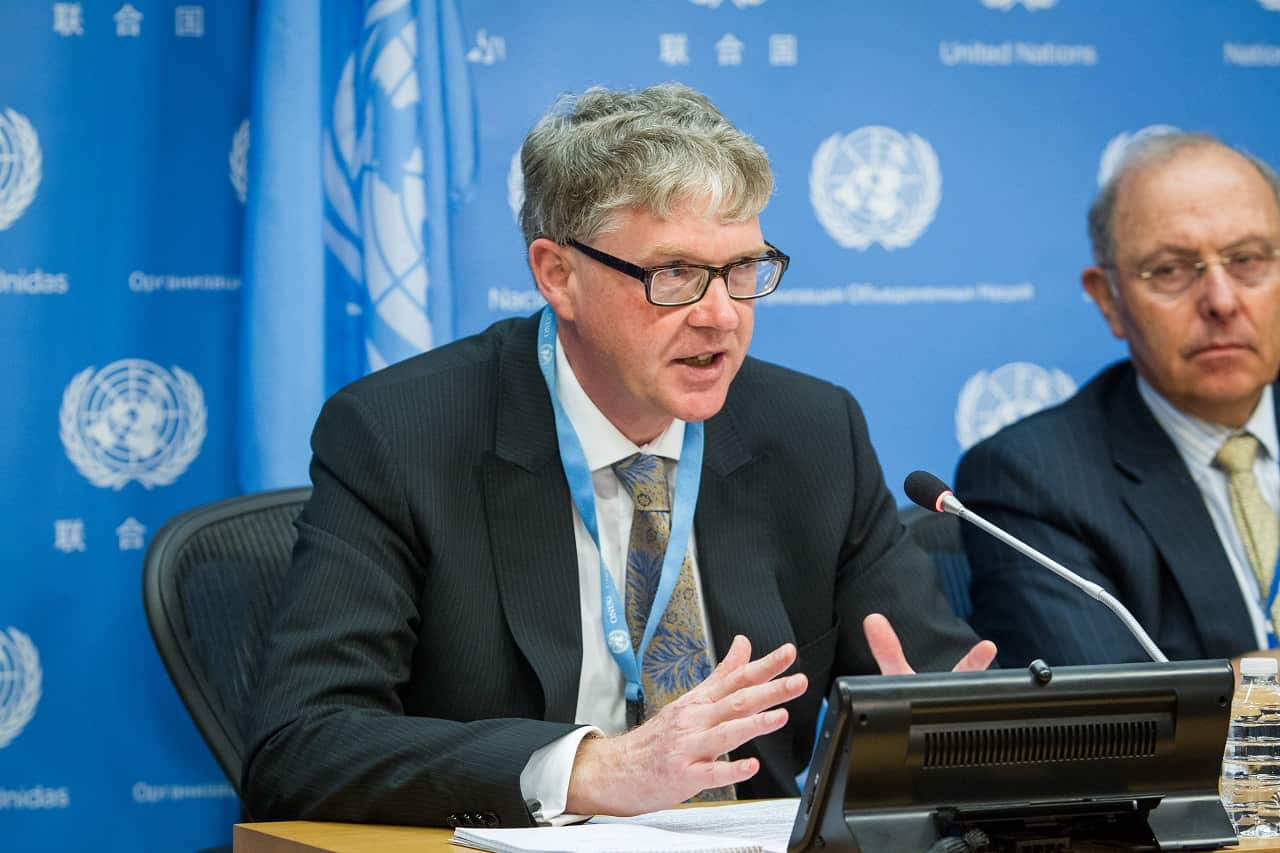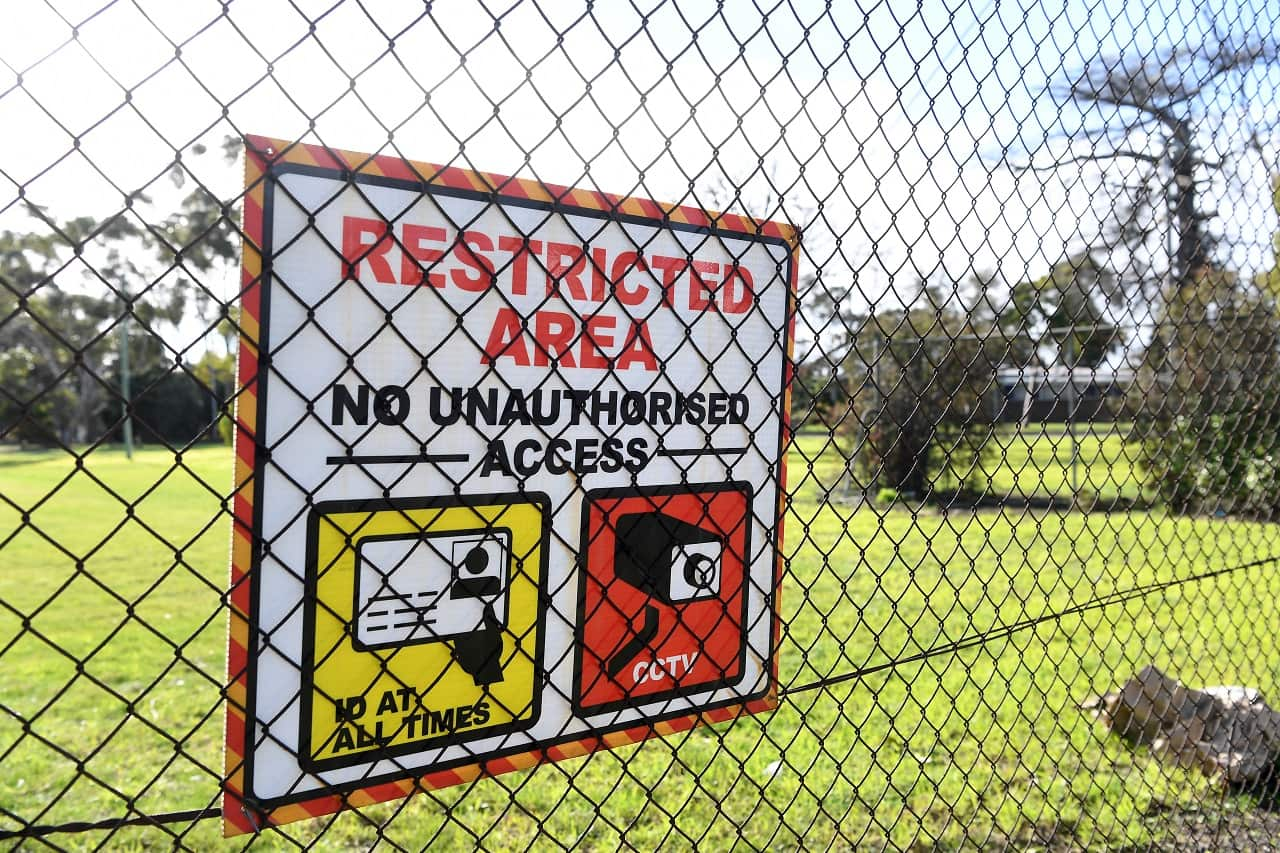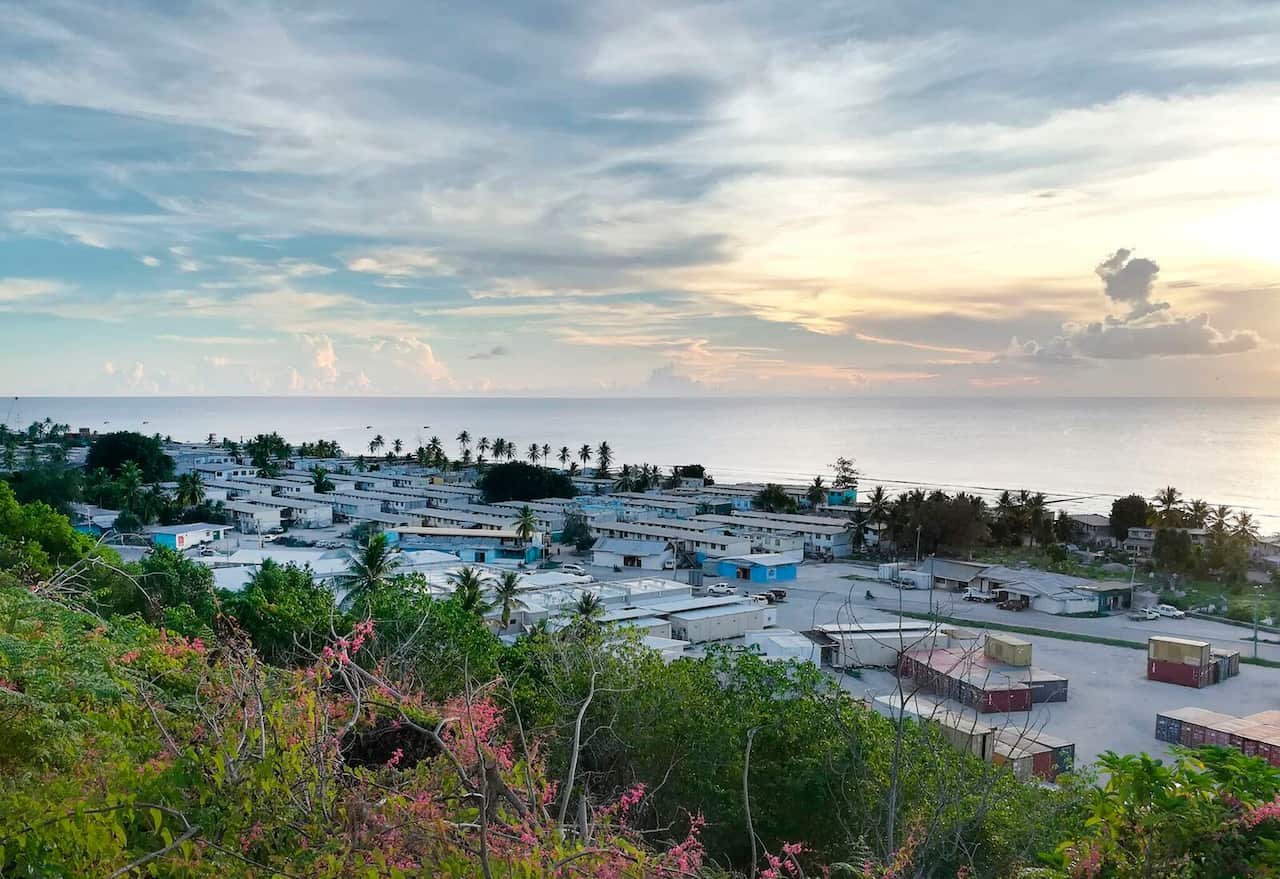A United Nations official who is set to have unlimited access to Australia's detention facilities says there are "systematic issues" with the country's immigration detention policies.
A team from the UN Subcommittee on the Prevention of Torture are planning a series of visits to Australian prisons, police stations and other places of detention.
The exact trip dates and details remain closely guarded but subcommittee chair Sir Malcolm Evans gave SBS News some indication of what the group may look into and said the visit was due in "the coming months".

"Immigration detention is an area we've been paying more attention to in recent years around the world," he said.
Australia is obliged to allow the visit after ratifying the Optional Protocol to the Convention against Torture in 2017.
The subcommittee will also be visiting Nauru, meaning both Australia's onshore and offshore immigration detention facilities could be under the microscope.
'Children should never be held in detention facilities'
Sir Malcolm would not comment on any individual cases, but his comments come as a Tamil family with two Australian-born children fight to remain in Australia after being held in immigration detention since March 2018.
Their more than 1.5-year detention was mostly in a Melbourne facility but they are now on Christmas Island as a last-minute legal injunction delayed their deportation.
The case is before a federal court again on Wednesday.
Asked about some of Australia's more controversial immigration detention policies, including mandatory detention and the detention of children, Sir Malcolm said:
"The basic starting point is that a person should not be in detention unless it is strictly necessary for them to be so and for the shortest possible period of time."

"Particularly when we're talking about families and children. That produces particular concerns. Because in principle, children should never be held in detention facilities, unless it is for very short periods and very specific purposes. Maybe on arrival or initial screening."
"So obviously, there are some systematic issues that we want to be discussing, observing and beginning to understand what the future plans are for trying to ensure the policies are in accordance with international standards on such matters."
Lawyer and director of Human Rights for All Alison Battisson told SBS News there were five children currently in immigration detention facilities in Australia.
"The Tamil family, an unaccompanied Iranian teenager and two Vietnamese toddlers classified as 'guests'," she said.
Spotlight on Indigenous people in detention
Sir Malcolm said the subcommittee also looked into how countries treat "particularly vulnerable groups" in detention, including Indigenous people.
Indigenous people are disproportionately imprisoned in Australia, with 2018 data revealing that all children in detention in the NT were Indigenous.
Last week, a 12-year-old Indigenous boy called the world's attention to Australia's youth detention laws at a UN meeting in Geneva.
"I want adults to stop putting 10-year-old kids in jail," he said, stressing that the age of criminal responsibility in Australia should be raised from 10 to 14.
Immigration detention 'a last resort'
SBS News contacted the Department of Home Affairs about concerns raised around immigration detention including mandatory detention and the detention of children.
"Immigration detention facilities are used as a last resort and for a very small proportion of the people while their immigration status is resolved, sometimes through protracted legal proceedings," an Australian Border Force spokesperson said.
"[And] when the department detains a minor, it is as a matter of last resort and for the shortest possible period."

The spokesperson would not confirm the number of children currently in immigration detention as "due to privacy concerns the department is not prepared to disclose the number of children accommodated within alternative places of detention".
"Minors in immigration detention are accommodated in facilities most appropriate to their individual circumstances and needs and in accordance with the department's risk mitigation settings."
Working with the government
Advocacy groups have broadly welcomed the UN subcommittee's planned trip.
Ruth Barson, a legal director at the Human Rights Law Centre, said international scrutiny is important to ensure governments are held to account.
"Abuse thrives behind closed doors. Australian governments have maintained an 'out of sight, out of mind' approach to places of detention for too long," she said in a statement about the upcoming visit.
"While independent scrutiny is essential to expose abuse, the onus will be on our governments to then take action and end mistreatment."

But Sir Malcolm stressed to SBS News that the visit is not intended to shame Australia in any way, but instead to work with the government to improve detention conditions.
"We can have the authority to go into any place where we think people may be held in detention," Sir Malcolm said.
"[But] we're not going to find out or investigate whether there are any allegations of ill-treatment. We are more concerned to find out the manner in which people are being detained, whether appropriate safeguards are in place, what can be done to improve [these places]," he said.
"We are not inspectors. We are not here to ensure people are complying with international standards or local standards or benchmarks. We are a preventative mechanism."
"Regretfully, too much human rights work is, in my experience, focused on telling people off rather than trying to work together."
At the end of the visit, the group will submit a confidential report to the Australian government.
Subcommittee material says "it encourages countries to make [these reports] public".
The subcommittee also plans to visit Croatia, Lebanon, Madagascar and Paraguay in the coming months.
